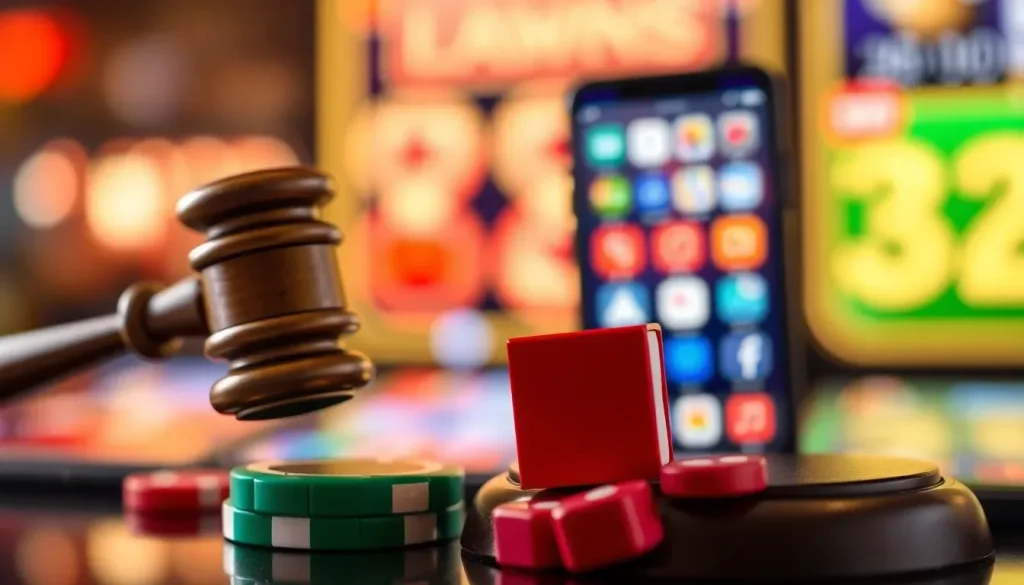Judge rules Section 230 doesn't apply in App Store gambling lawsuit

In a significant legal development, Apple has encountered a hurdle in its ongoing battle against accusations relating to illegal gambling practices in its App Store. A federal judge has ruled that the tech giant must face a lawsuit that alleges it not only promotes but also profits from unauthorized gambling applications. This case could have far-reaching implications for how tech companies manage and regulate content on their platforms.
Judge's Ruling on Section 230 and Its Implications
In recent years, a coalition of tech giants, including Apple, Alphabet, and Meta, has found itself at the center of a growing number of lawsuits. These companies are facing a putative class action suit that claims they have violated various state consumer protection laws by distributing gaming applications that function as social casinos, essentially permitting illegal gambling.
The plaintiffs in this lawsuit argue that these "simulated social casino apps" are designed to be just as addictive as traditional gambling. They contend that Apple and its counterparts are benefiting financially from the losses incurred by users who engage with these apps. The allegations extend to claims of participation in a "pattern of racketeering activity," a serious legal accusation that the companies have firmly denied.
To defend themselves, the tech companies have invoked Section 230 of the Communications Decency Act of 1996. This law was originally designed to promote the growth of the internet by protecting platforms from liability for user-generated content. It states:
“No provider or user of an interactive computer service shall be treated as the publisher or speaker of any information provided by another information content provider.”
However, Section 230 has increasingly come under scrutiny, as critics argue that it enables large tech companies to evade accountability for harmful content that proliferates on their platforms. The judge overseeing this case, U.S. District Judge Edward Davila, has now ruled that Section 230 does not apply in this instance.
In a comprehensive 37-page decision, Judge Davila asserted that the companies did not act as "publishers" when processing payments for these gambling apps. He emphasized that their provision of "neutral tools" to support these applications does not absolve them of responsibility. His ruling indicates that the companies may appeal, but for now, they must confront the fundamental accusations laid before them.
The Legal Landscape of Gambling Apps
Gambling apps have surged in popularity, particularly in an era where digital interactions have become the norm. This has raised crucial legal questions regarding their regulation and the responsibilities of platforms hosting such content. The legal landscape surrounding gambling apps includes several important factors:
- State Regulations: Each U.S. state has its own set of laws governing gambling, which can complicate the operation of apps that may be legal in one state but illegal in another.
- Consumer Protection Laws: States are increasingly enacting laws to protect consumers from potentially harmful gambling practices, especially in light of concerns about addiction.
- Platform Liability: The ruling in this case could set a precedent about the extent to which platforms can be held liable for content and activities facilitated through their services.
- Public Perception: As awareness grows about the addictive nature of these apps, public and legal scrutiny may increase, prompting tech companies to implement stricter guidelines.
Impact of the Ruling on the Tech Industry
This ruling could have broad implications for the tech industry, especially in how companies approach the hosting and management of applications that may fall within murky legal boundaries. The outcome of this case may serve as a bellwether for future litigation involving digital platforms and their responsibilities. Some potential impacts include:
- Increased Compliance Costs: Companies may need to invest more in compliance measures to ensure they are not inadvertently facilitating illegal activities.
- Changes in App Store Policies: This ruling may prompt platforms to reassess their policies regarding the types of apps they allow, potentially leading to stricter vetting processes.
- Litigation Precedents: Future lawsuits may reference this ruling, potentially broadening the scope of what constitutes liability for tech companies.
- Consumer Trust: As these issues are exposed, companies may need to work harder to maintain consumer trust, ensuring users feel safe while using their services.
As the legal battle unfolds, it will be crucial to monitor how these developments influence the tech industry and consumer behavior. The ruling not only affects Apple but could also have a ripple effect on other tech giants grappling with similar legal challenges.
Video Insight on the Ruling
For a deeper understanding of the implications of this ruling and its context within the broader tech landscape, consider watching the following video, which discusses the ramifications of similar legal decisions in the industry:
Conclusion: The Future of Gambling Apps
The outcome of this case is likely to shape the future of gambling apps in the digital age. As regulators and tech companies navigate this complex landscape, the importance of consumer protection and ethical standards in online platforms remains paramount. The ruling serves as a reminder that accountability and responsibility in the tech sector are more critical than ever before.
Accessory Deals on Amazon
- Logitech MX Master 4 – NEW
- AirPods Pro 3
- Wireless CarPlay adapter
- iPhone Air Ultraslim Magsafe Power Bank ($22.99)
- Apple AirTag 4 Pack
- Beats USB-C to USB-C Woven Short Cable
FTC: We use income-earning auto affiliate links. More.




Leave a Reply